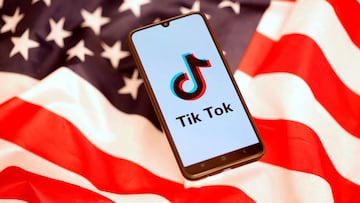TikTok sues Montana: Is the app ban against unconstitutional?
Montana became the first US state to ban TikTok. The company has responded by suing the state, declaring the ban unconstitutional...

Montana has recently implemented a law that prohibits the use of Tik Tok, making it the first state to do so. This decision has sparked discussions about the possibility of similar actions being taken in other parts of the country, given the ongoing conflict between the US government and the social media platform.
The ban was set to go into effect on 1 June, but Tik Tok US has sued, saying that the move by the state is “unlawful.” Independent newscaster Kyle Kulinski broke down the new law on his program, describing the state leaders’ motivations that led to the legislation being enacted.
Montana Governor Greg Gianforte defended the law saying it was necessary to protect the state’s residents from the Chinese Communist Party, a common refrain from Republicans, many of which seek to see the application banned nationwide.
What determines if a law is constitutional?
The US Constitution endows citizens with certain rights. The First Amendment, for example, describes personal freedoms and covers the right of free speech, the practice of religion, assembly, press, and petition.
TikTok said in a statement that the law is overly restrictive and violates the rights to free speech of their users in the state, and if the court finds that the law inhibits speech, it would represent a violation of the First Amendment of the US Constitution. In that case, the law would be determined to be unconstitutional and would be overturned, allowing TikTok users in the state to continue using the app. It would also require Republicans, and some Democrats, who oppose the availability of TikTok to write new legislation.
A high legal standard to meet
The courts could decide that the security threat caused by the application, which would need to be heavily substantiated by the state, warrants a ban. This legal standard is incredibly high, and there are only a few constitutional law cases where the court has infringed on expressive freedoms.
Labor hero and anti-war activist Eugene Debs was arrested during World War I for opposing the draft and arguing publicly that young men should refuse to be sent overseas. Debs’s actions were interpreted as a national security risk, and he was tried under the Sedition Act, and his conviction was upheld by the United State Supreme Court. However, when the war ended, and President Woodrow Wilson left office, his sentence was commuted by President Warren G. Harding. Debs and many others who were incarcerated for speaking out against the war effort were released because political leaders felt that the curtailing of expressive freedoms could be justified during wartime and that approach to the law should not stand during times of peace.
In Montana, the courts will have to determine whether the potential of data sharing with the People’s Republic of China (which, to be clear, TikTok has denied and taken steps to prevent) represents a great enough threat to the public and users.






